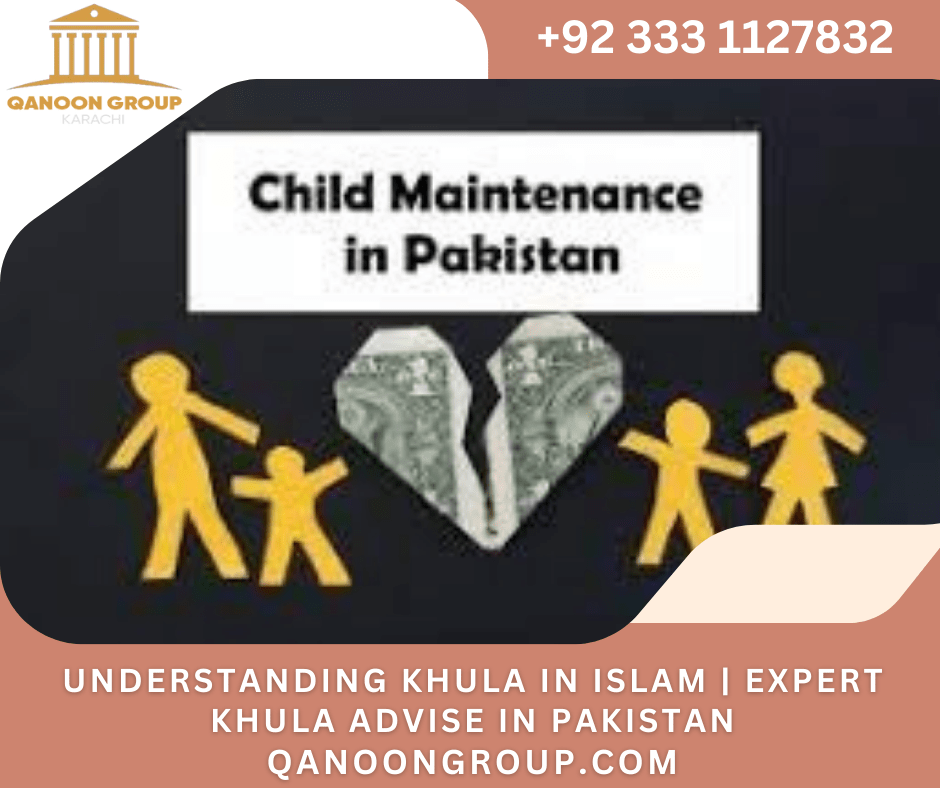Understanding Khula in Islam | Expert Khula Advise in Pakistan
Khula: Understanding its Origin, Interpretations, and Implications
Blog ByAsif Raza :
Unlocking the mysteries of Islamic family law can be a fascinating journey, and one concept that often sparks curiosity is “khula.” Khula, an Arabic term meaning “to take off” or “to remove,” refers to a Muslim woman’s right to seek a divorce from her husband. This unique legal procedure originates within Islamic texts and has evolved to address various social and cultural contexts.
Origins of Khula
Khula, as a concept of divorce in Islamic law, has its roots in the teachings of the Quran and hadiths. Its origins can be traced back to early Islamic society, which was established as a means for women to dissolve their marriages. Over time, khula has evolved and adapted to different cultural contexts, reflecting the diverse interpretations within Islamic jurisprudence.
Khula in Islamic texts
Khula in Islamic texts holds significant importance when understanding its origins and implications. The concept of Khula is derived from the Quran and Hadith, which guide marriage dissolution for Muslim women seeking a way out of an unhappy or abusive marriage. These texts outline the conditions, processes, and rights associated with Khula, shaping the framework for its interpretation in different cultures and societies. Exploring these texts provides valuable insights into how Khula has been understood and practiced throughout history.
Role of the Qur’an and Hadith in Defining Khula
The Qur’an and Hadith are crucial in defining Khula, the Islamic concept of divorce initiated by the wife. The Qur’an provides guidelines on marital dissolution, while Hadith offers additional insights from the Prophet Muhammad’s (Peace Be Upon Him) teachings. These sources help establish the principles and procedures for Khula, ensuring that it is carried out within the framework of Islamic law. Individuals seeking Khula can navigate this process with religious guidance and clarity by referring to these sacred texts.
Compensation in Khula
Compensation in Khula plays a significant role in the process. It involves returning the dowry or any other financial contributions made by the husband during the marriage. The amount of compensation is usually negotiated between both parties, considering factors such as the duration of the wedding and financial circumstances. This ensures a fair settlement and allows for a smooth separation without causing undue hardship to either spouse.
Consent of the Husband in Khula
In obtaining a khula divorce, the husband’s consent plays a crucial role. According to Islamic law, the husband’s agreement is necessary for khula to be granted. This ensures that both parties are mutually willing to end their marriage. The husband’s consent signifies his acknowledgment and acceptance of his wife’s desire for separation. With this consent, it becomes easier for women seeking khula as they may face legal hurdles in court proceedings.

Role of the Court in Khula cases
Regarding Khula cases, the court’s role must be considered. The court acts as the mediator and decision-maker in these proceedings. It ensures that both parties are treated fairly and that all legal requirements are met. From reviewing evidence to facilitating negotiations, the court plays a crucial role in ensuring a just outcome for those seeking Khula. Its involvement provides a structured framework for resolving disputes and upholding Islamic principles of justice and equity.
Custody of Children in Khula
When it comes to Khula, the issue of custody of children plays a significant role. In Islamic law, the mother is given priority for custody, especially for young children. However, this can vary depending on specific circumstances and the child’s best interests. The court will consider factors such as the mother’s ability to provide care and support and the father’s involvement in their upbringing. Ensuring that children are well taken care of remains crucial in Khula proceedings.
Khula practices in Jordan, Morocco, and Syria
Khula practices in Jordan, Morocco, and Syria vary based on the interpretations of Islamic law within these regions. In Jordan, Khula is recognized and requires a judicial process for dissolution. Morocco has implemented reforms to make it easier for women to obtain Khula without court intervention. In Syria, Khula is available but can be more challenging due to conservative social norms. These diverse approaches highlight the cultural nuances that shape the implementation of Khula in different contexts throughout the Muslim world.

Khula practices in North America
In North America, the concept of Khula has gained recognition within the Muslim community. While Islamic law governs the proceedings, there are variations among different states and jurisdictions. Some require court involvement, while others rely on religious authorities to oversee the process. With a focus on ensuring fairness and protecting women’s rights, North American Khula practices aim to provide an accessible avenue for individuals seeking dissolution of their marriages. These practices reflect the evolving nature of Islamic family law in diverse cultural contexts.
Khula practices in Pakistan
Khula practices in Pakistan have evolved, reflecting a blend of cultural and religious influences. Under Islamic law, Khula is recognized as a means for women to seek divorce from their husbands. The process involves filing a petition with the family court and providing valid grounds for seeking separation. While some challenges remain regarding societal acceptance and legal procedures, Khula offers Pakistani women an avenue to dissolve unhappy marriages and reclaim their autonomy.
Study Sources on Khula
Studying reliable sources is crucial to understanding Khula. Researchers and scholars have delved into Islamic texts, including the Qur’an and Hadith, to decipher the intricacies of this concept. They have analyzed historical accounts, legal opinions, and religious interpretations to illuminate their origin and implications. By exploring these study sources, we can better understand Khula’s significance in Islamic law and its impact on individuals seeking dissolution of their marriages. So, let’s dive into the scholarly works that unravel the complexities of Khula.
The Significance of Consent in Khula
Consent plays a crucial role in the Khula process, highlighting the importance of mutual agreement between spouses. It allows both parties to actively participate and make informed decisions about their marriage. Seeking consent ensures that the decision to dissolve the marriage is made willingly and voluntarily, promoting fairness and respect within Islamic marital practices. Without consent, Khula would not hold its true essence as a means for liberation from an unhappy union.
Khula and Its Impact on Custody of Children
When it comes to Khula, the issue of custody of children is an important aspect that needs careful consideration. In Islamic law, the mother is usually granted custody of young children after a khula divorce. However, this may vary depending on specific circumstances and the rulings in different jurisdictions. Parents must understand their rights and obligations regarding child custody to ensure the best interests of their children are protected throughout the khula process.
Khula and Financial Settlements: Rights and Obligations
Regarding Khula, financial settlements are crucial. Both parties have certain rights and obligations that must be addressed during the process. The wife may request compensation for her dowry or other assets she brought into the marriage. On the other hand, the husband must provide maintenance for his ex-wife and any children involved. These financial matters must be carefully negotiated and agreed upon to ensure a fair resolution for both parties. It is important for individuals going through khula proceedings to seek legal advice to understand their rights and responsibilities.

The Duration of Khula Proceedings in Islamic Law
Khula, the Islamic form of divorce initiated by the wife, follows a specific process that varies in duration. While there is no fixed timeline for khula proceedings, it typically involves multiple stages, such as counseling sessions and court hearings. The length of time can depend on various factors, including the case’s complexity and the judicial system’s efficiency. It is essential to consult local laws and seek legal guidance to understand how long khula proceedings may take in your jurisdiction.
Khula in Different Islamic Schools of Thought
The concept of khula, or the dissolution of a Muslim marriage initiated by the wife, is interpreted differently across various Islamic schools of thought. Each school has its nuanced understanding and rulings regarding the conditions and procedures for khula. It is essential to recognize these variations as they shape how individuals navigate this process within their communities. Understanding these differences allows us to appreciate the diversity within Islam and how it manifests in marital matters such as khula.
The Role of Witnesses in Khula Proceedings
In Khula proceedings, witnesses play a crucial role in validating the dissolution of marriage. According to Islamic law, two male or one male and two female witnesses must testify with both parties’ consent. These witnesses serve as impartial observers who confirm that the decision has been made willingly and without coercion. Their testimonies hold significant weight in ensuring fairness and transparency throughout the process.
Khula and Its Social Implications
The practice of Khula, a form of divorce initiated by the wife in Islamic law, has significant social implications. It empowers women to seek freedom from unhappy marriages and escape abusive relationships. This not only promotes gender equality but also contributes to the overall well-being of individuals within society. By recognizing and supporting Khula, communities can foster healthier relationships, ensure better mental health outcomes for women, and promote a more inclusive society for all.
Khula: A Way to Escape Abusive Marriages
In some cases, marriage can become a prison instead of a sanctuary. For individuals trapped in abusive marriages, khula provides an avenue for liberation. This Islamic divorce option allows women to seek separation from their husbands when the relationship becomes intolerable or harmful. Khula empowers women by giving them the right to dissolve a marriage that is detrimental to their well-being and safety. It offers hope and freedom for those who desperately need it. No one should be forced to endure abuse within the confines of matrimony.

The Emotional and Psychological Aspects of Khula
While understanding Khula’s origins, interpretations, and implications in Islamic law, it is crucial to delve into the emotional and psychological aspects accompanying this process. Khula is not just a legal procedure but an intensely personal decision that can profoundly affect the individuals involved. Khula represents more than just a legal separation—it signifies empowerment for those seeking liberation from unhappy marriages. Still, it requires careful consideration, given its significant impact on individuals’ emotional well-being. As society continues to evolve, it is essential.
Khula and Its Implications on Inheritance Rights
As an Islamic divorce initiated by the wife, Khula carries specific implications for inheritance rights within the family. In traditional Islamic law, the dissolution of a marriage through Khula does not generally affect the wife’s inheritance rights from her husband’s estate. However, there can be variations in interpretations and practices across different Islamic schools of thought and regions. The extent to which Khula may influence inheritance largely depends on the specific agreements made during the Khula proceedings, particularly regarding the return of the Mahr (dower) or other financial settlements.
gious and Social Stigma
In some communities, Khula can be associated with religious and social stigma, highlighting the complex interplay between Islamic teachings, cultural norms, and individual choices. While Islam provides Khula as a legitimate option for women seeking a divorce, cultural and societal attitudes can influence how Khula is perceived. In some cases, women who pursue Khula may face judgment or pressure from their communities or extended families. Religious leaders and scholars may be pivotal in reinforcing or challenging these social stigmas, impacting how Khula is viewed within particular religious contexts.
The Intersection of Khula and Child Custody Laws
Khula proceedings often intersect with child custody laws when marriage involves children. While Khula primarily pertains to the dissolution of the marital relationship, child custody arrangements are crucial considerations in the aftermath. These arrangements can vary depending on the jurisdiction and the best interests of the child. Courts or religious authorities may need to determine custody and visitation rights, and the outcome can vary significantly from case to case.

Khula and Its Impact on Post-Divorce Support
The impact of Khula on post-divorce support extends beyond the dissolution of the marriage itself. Khula proceedings may involve discussions regarding financial settlements, including the return of the Mahr (dower) or other assets specified in the marriage contract. These financial arrangements can significantly affect the economic well-being and independence of the woman post-divorce. Therefore, Khula is not only a means of ending a marriage but also a process that seeks to address the woman’s financial security and support following the divorce.
Legal Precedents and Landmark Khula Cases
Over time, various legal precedents and landmark Khula cases have shaped the interpretation and application of Khula within different legal systems. These cases often establish essential legal principles and guidelines for future Khula proceedings. They may address issues related to financial settlements, child custody, or the role of religious authorities. Examining these legal precedents can provide valuable insights into the evolving landscape of Khula jurisprudence and how it intersects with broader legal frameworks and societal norms.
Khula and the Right to Remarry in Islam
Khula carries specific implications for the right to remarry in Islam, both for the woman seeking Khula and her former spouse. Once Khula is granted and the marriage is dissolved, the woman regains her legal status as a single woman and can remarry if she wishes. Her former spouse is also free to remarry, subject to Islamic law and cultural norms stipulations. Understanding these rights and responsibilities regarding remarriage is a crucial aspect of the Khula process, as it involves both personal choices and adherence to religious teachings and legal regulations.

Challenges Faced by Women in Pursuit of Khula
Women pursuing Khula may encounter various challenges throughout the process. These challenges include legal obstacles, social stigma, financial hardships, and emotional stress. The level of support and understanding from family, community, and religious leaders can vary, impacting a woman’s experience during Khula proceedings. Addressing and mitigating these challenges is essential to ensure women can exercise their rights to Khula without undue hardship or discrimination.
Khula and the Role of Religious Leaders
Religious leaders often play a significant role in Khula proceedings within Islamic communities. They may provide guidance on religious and ethical aspects of Khula, offer counseling to the parties involved, or even serve as mediators in resolving disputes. The influence and perspectives of religious leaders can significantly shape the outcome and perception of Khula within a particular community. Therefore, understanding their roles and responsibilities in the context of Khula is essential for those seeking divorce through this Islamic legal process.
Cultural Variations in the Practice of Khula
The practice of Khula can exhibit significant cultural variations across different regions and Muslim communities. While the core principles of Khula remain rooted in Islamic law, cultural nuances often influence how the process unfolds. These variations can pertain to the involvement of family members, the role of community elders, and the specific customs and traditions observed during Khula proceedings. Understanding these cultural differences is crucial when navigating the Khula process, as they can impact both the procedures followed and the overall experience for the individuals involved.
Khula and the Preservation of Dignity in Divorce
As a mechanism for divorce initiated by the wife, Khula emphasizes preserving dignity and respect for all parties involved. It allows women to seek divorce when their marital circumstances are untenable, ensuring their right to make choices about their own lives. By offering an avenue for women to dissolve marriages that may be causing emotional distress or hardship, Khula promotes preserving their dignity throughout the divorce process. This approach aligns with Islamic principles of compassion and equity, aiming to minimize harm and uphold the dignity of individuals during a challenging life transition.
Public Opinion on Khula: Challenges and Acceptance
Public opinion on Khula can vary widely, reflecting the diverse perspectives within Muslim-majority societies and communities. While some segments view Khula as a crucial mechanism for women’s empowerment and autonomy, others may hold more conservative views that question or challenge its legitimacy. Navigating these differing opinions can pose challenges for individuals seeking Khula, as social acceptance and community support can significantly impact the experience and outcomes of the process. Advocacy and awareness campaigns often foster greater understanding and acceptance of Khula as a legitimate and compassionate form of divorce within Islamic societies.
Khula and Women’s Rights Advocacy
Khula intersects with broader women’s rights advocacy efforts, representing a legal mechanism enabling women to exercise agency and autonomy in their marital relationships. Advocates for women’s rights often highlight Khula as a means of empowering women to escape abusive or unhappy marriages and pursue paths that align with their well-being and aspirations. These advocacy efforts may raise awareness about the legal rights and options available to women within Islamic law, including the right to seek Khula when necessary.

Khula and the Question of Mahr (Dower)
The issue of Mahr, or dower, is intricately linked to Khula proceedings. Mahr represents the financial settlement agreed upon in the marriage contract, and its return or relinquishment may be an essential element of Khula negotiations. The resolution of this matter can vary depending on the terms outlined in the marriage contract and the agreements reached during Khula proceedings. The question of Mahr in Khula cases underscores the importance of careful consideration and adherence to contractual agreements in Islamic marriages.
Khula and the Role of Family Mediation
Family mediation often plays a crucial role in Khula cases, facilitating communication and resolution between spouses seeking divorce. Mediators can help navigate complex emotional and practical issues, such as child custody, financial settlements, and property division. The role of mediators can vary, from family members and community elders to trained professionals specializing in conflict resolution. Their involvement aims to foster constructive dialogue, promote understanding, and reach mutually agreeable solutions, which can be particularly beneficial in cases where spouses wish to part amicably.
The Role of Islamic Scholars in Khula Proceedings:
Islamic scholars often serve as crucial guides and advisors in Khula proceedings. Their role extends beyond mere legal interpretations, providing valuable religious and ethical insights to individuals navigating the process. Islamic scholars can offer guidance on the religious permissibility and moral implications of seeking Khula, ensuring that individuals make informed decisions aligned with Islamic principles. Additionally, they may mediate disputes, offer counseling, and help ensure that the Khula proceedings adhere to the tenets of Islamic law.
Khula and the Empowerment of Muslim Women:
Khula is a significant tool for empowering Muslim women. It grants them the right to initiate divorce when their marriages become untenable or detrimental to their well-being. This empowerment extends to their ability to make life choices, particularly when facing adversity or unhappiness within their marital relationships. Khula provides Muslim women with agency and autonomy, aligning with principles of justice and compassion within Islamic teachings.
Contact us for Khula services in Pakistan
